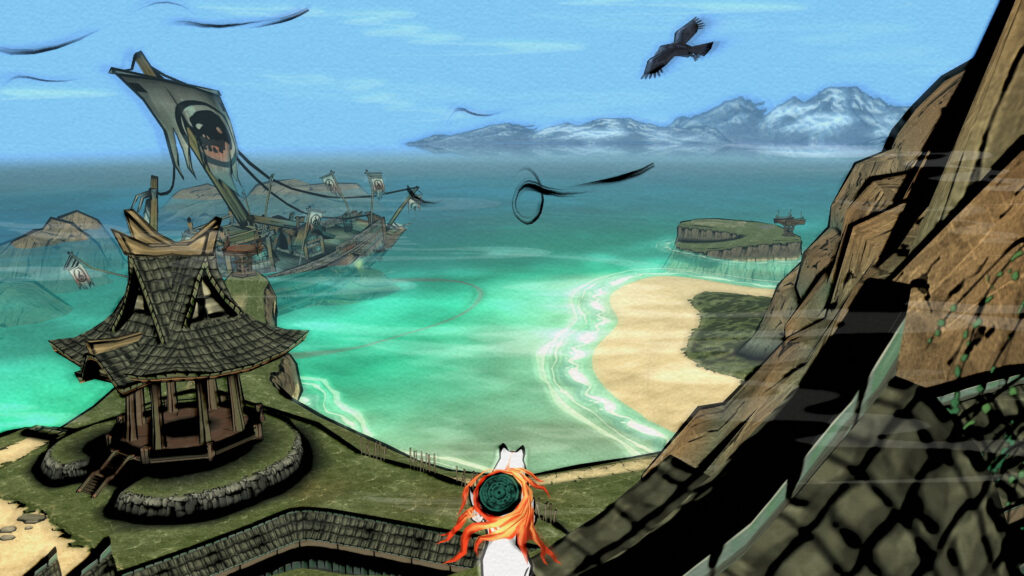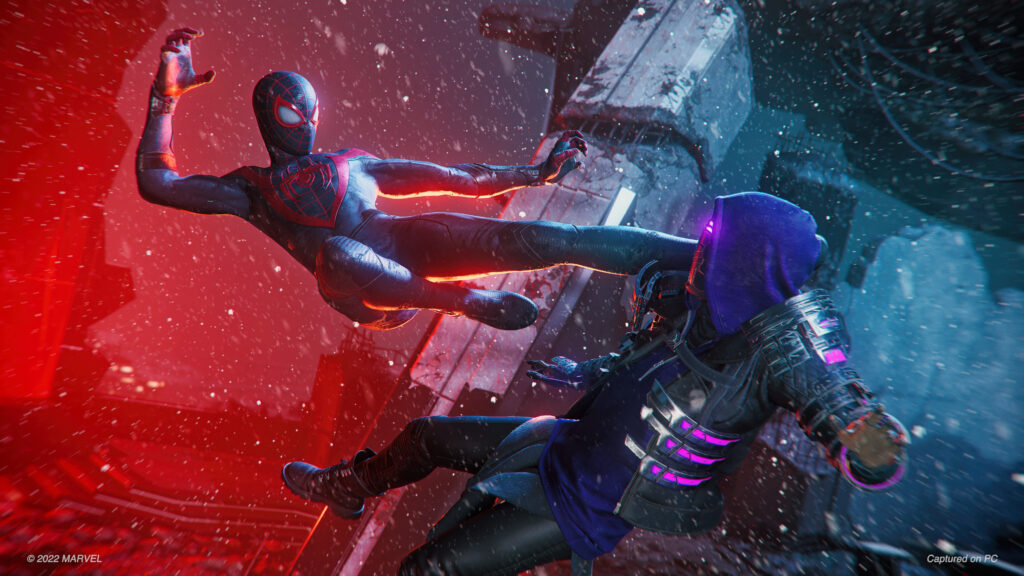Have you ever noticed how the gaming world, once dominated by a monotonous cast of characters, is now undergoing a remarkable transformation? For years, the industry seemed stuck in a narrative loop, featuring predominantly white male protagonists, but it’s time for a change.
After a long day of work and navigating the many challenges of life, we turn to games for an escape, for a journey beyond the ordinary, predictable lives many of us lead. And now, part of that journey includes a call for diversity and representation in your games. It’s all about making makes that speak to everyone, reflecting the myriad of experiences that make us who we are, our heritage, and our identities.
Nowadays, inclusivity is a buzzword no longer, since it has become a necessity across many areas of entertainment. And, unsurprisingly, the gaming industry is catching on. In this article, we’ll tell you everything you need to know about diversity and representation in your games – why it matters, its amazing benefits, and the challenges developers face when trying to include diversity and representation in their projects.
Diversity and representation in your games: does it really matter?
In short: yes, it does!
We all crave action-packed gameplay, puzzles that will bend your mind, and virtual environments that are as breathtaking as Keanu Reeves. But there are two ingredients that elevate games from mere entertainment to experiences that resonate a little with us: diversity and representation.

Imagine stepping into a digital world where your avatar reflects your unique identity, speaks your language, understands your heritage’s culture, and goes through challenges similar to those you did.
Even better: remember when black girls all over the world were ecstatic upon seeing Halle Bailey cast as the live-action Ariel in The Little Mermaid (2022)? That feeling of pure joy, of seeing someone like you reflected on the big screens, is exactly why diversity and representation matter in games too.
It’s not just about feeling good, it’s about feeling seen, validated, and like you belong. Studies show that nearly half of the gamers worldwide don’t play games they don’t feel are made for them. That’s a huge chunk of players missing out on incredible experiences because they can’t find a character, story, or environment that resonates with them. And they’re not the only ones – companies are missing out on it, too!
Benefits of diversity and representation in games
As we hinted above, there are many benefits to adding some diversity and representation in games. Let’s look at the four most important ones:
Enhances immersion and connection
When games embrace diversity, it makes them better for everyone. Different voices and experiences lead to richer narratives, more complex characters, and gameplay that’s more interesting and challenging. It’s like adding extra spices to a dish – usually, the more diverse the ingredients, the more delicious the final result.
Suddenly, the dialogue feels more authentic, the characters relatable, and the stakes even higher. You’re not just playing a game – you’re living it, inhabiting a digital space where your culture, your presence, and your heritage feel valued.
This deeper connection isn’t just about mirroring identities, though. Diverse narratives and characters act as bridges, allowing players to step into the shoes of others, experience different cultures, and understand perspectives they might never have encountered before.

In other words, it’s a chance to see the world through someone else’s eyes and to build empathy and understanding across lines of difference.
And all that isn’t limited to the single-player experience, nuh-uh. Games that go above and beyond in properly adding diversity and representation often foster more vibrant and inclusive communities where people from all walks of life can gather and collaborate.
Combats stereotypes and promotes inclusivity
Games have the unique power to shape our perceptions of the world. Unfortunately, they have often perpetuated harmful and inaccurate stereotypes about different cultures, disabilities, and identities.
Imagine that, for years, the only wheelchair user in many games is a helpless NPC, the only character with Middle Eastern traits is portrayed as a villain, or the female protagonist is a walking disaster who always needs your help. These examples (and many more) reinforce harmful biases and create a false narrative that excludes and marginalizes entire communities.
Diversity and representation try to break free from these tired tropes. Games challenge these stereotypes head-on by showcasing characters with diverse backgrounds, abilities, and perspectives. These nuanced portrayals chip away at preconceived notions, allowing players to see individuals beyond their labels and appreciate the richness of their experiences.
By the way, inclusivity doesn’t just mean having a diverse roster of characters; it’s about creating worlds where everyone feels welcomed, valued, and respected, no matter their backgrounds, preferences, or abilities. Challenging stereotypes is one of the most effective ways to promote inclusivity in your games.
Potentially boosts creativity and innovation
Diversity and representation in games not only enhance the player experience but also serve as catalysts for creativity and innovation behind the scenes. When development teams reflect a variety of perspectives, backgrounds, and experiences, it’s like a melting pot of ideas, creating a dynamic environment where fresh ideas and innovation thrive.
Imagine a game development studio during a collective brainstorming session. Now, picture that everyone in the room comes from different walks of life, bringing unique cultural influences, personal stories, and varying viewpoints to the table. It’s similar to having dozens of colors to paint with, each hue contributing to the richness and depth of the artwork.
In a creativity-dependent industry like game development, innovation is highly sought-after, and diverse teams are more likely to approach game design from multiple angles, leading to innovative solutions that might not have emerged in a more homogenous environment.
Attracts a larger, more diverse player base, expanding reach and revenue
Last, but not least, diversity and representation are good for business! By embracing these concepts, games open their doors to a larger and more diverse player base, creating a ripple effect that enhances the gaming experience and significantly expands its reach, increasing the game’s revenue potential.
When players find characters and narratives that resonate with their backgrounds, cultures, and identities, it creates a sense of belonging and connection. Picture a player from an underrepresented group encountering a protagonist who shares their experiences and challenges. This player is more likely to engage with the game, perhaps giving it a go when otherwise they wouldn’t.

Inclusivity fosters a sense of community within the gaming space. When players feel seen and represented, they are more likely to actively interact with other players, contributing to discussion and forming connections with other gamers. This vibrant and diverse community becomes a powerful marketing tool in itself, as it generates lots of media buzz on social media.
A well-represented and diverse player base also contributes directly to increased revenue streams. We all know the gaming industry is vast, with players spanning various demographics, ages, and interests. By catering to a diverse audience, developers can tap into the markets that have been overlooked in the past.
Finally, diversity and representation often encourage the development of games with different genres and themes. Titles that reflect a variety of cultures, perspectives, and experiences can appeal to a wider range of interests if done well. For instance, a game with characters and storylines inspired by different cultures might attract players who are passionate about exploring and learning about new cultures.
Challenges faced by developers
While the push for diversity and representation in games is a commendable and necessary endeavor, developers often face several challenges when striving to include those two ingredients properly. Let’s take a look at some of them:
Industry tradition and inertia
Much like Hollywood, the gaming industry also has a history of certain tropes and character archetypes that have persisted for years – you can’t deny they work too well. Breaking away from these ingrained patterns can be met with resistance, as there might be a reluctance to deviate from established norms.
Developers may also face opposition from those who are comfortable with the status quo and stakeholders, such as publishers and investors. As they usually can exert their influence on creative decisions, the commitment to proper representation can get diluted in favor of marketability and financial returns.
Pressure to conform to market trends
On top of the previous point, game makers often feel pressured to conform to perceived market expectations and trends. If certain games or characters have historically been successful, there might be hesitancy to deviate from these proven formulas.
This pressure can make it hard for game designers to experiment and come up with something new, neutering creativity and limiting the exploration of diverse, inclusive characters and narratives.
Backlash and controversy
As unfortunate as it is, efforts to introduce diversity can sometimes be met with backlash and controversy – don’t you remember how much of a deal casting a black actress as Ariel in The Little Mermaid was, or, more recently, Grand Theft Auto 6’s main character being Lucia, a Latina woman?
Given what we see on social media, some segments of the gaming community still resist change, expressing displeasure and hostility towards more inclusive content. For this reason, many development studios fear negative reactions, which could severely impact their reputation or sales.
Cultural sensitivity and resource constraints
Representing diverse cultures, identities, and experiences accurately requires a deep and nuanced understanding. Developers face the challenge of avoiding stereotypes and misrepresentations, which demands thorough research and collaboration with individuals from the communities they want to portray.
Small or independent game developers might struggle with their limited budgets and manpower, making it tough to invest in the necessary research or hire diverse teams. This can result in unintentional mishaps and tokenistic attempts at representation, which can seriously hurt their reputation.
Conclusion
As seen in this article, diversity and representation in games are not just buzzwords, but essential ingredients that make games more personal and more inclusive. From enhancing immersion and combatting stereotypes to expanding reach and revenue, implementing both concepts is positive for gamers and developers alike.
All in all, despite the challenges faced by studios, the push for diversity in gaming is a strategic move that resonates positively with players and opens doors to untapped markets, increasing its chances of finding success.
Speaking of it, at Main Leaf, we understand the power of innovation, creativity, and inclusivity in the gaming industry. Our team of 70+ professionals is not just about crafting games, but also delivering experiences that diverse audiences can enjoy.
Whether you need a hyper-casual mobile game with cute graphics or something more specific, like a post-apocalyptic action RPG for the latest generation of consoles, we have the expertise and the manpower to bring your vision to life.
To get started with our game development services, shoot us a message below – you’ll hear back from us within 24 hours!

